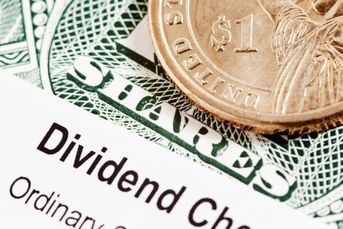FAANGs are really solo acts, not a supergroup
 Lights illuminate a power cable. Photographer: Akos Stiller/Bloomberg
Lights illuminate a power cable. Photographer: Akos Stiller/Bloomberg
The five stocks differ in many ways — they're not even all tech companies
It’s time for FAANG stocks to break up, at least in investors’ minds.
Facebook, Apple, Amazon, Netflix and Google parent Alphabet can’t get away from one another. Every time one grabs the spotlight — as Apple did last week when it became the first U.S. company with a $1 trillion market value — it brings along the other four.
They’re alternately hailed as the hot stocks, technology’s brightest lights and indispensable growth companies, and jeered as a worrisome sign of a frothy and top-heavy market. But look closely and it’s no longer clear why they should be lumped together at all.
Let’s start with the technology moniker. Amazon is a retailer and Netflix is an entertainment company, which is why, contrary to popular perception, the Global Industry Classification Standard, or GICS, tags them as consumer discretionary companies, not tech. And as of the next GICS reclassification in September, Facebook will move from the tech sector to telecommunications, where it belongs. Only two of the five FAANGs, in other words, are true technology companies.
Another questionable claim is that the FAANGs have hijacked the market. Yes, the FAANGs are giants, four of the five biggest U.S. companies by market capitalization in the S&P 500 Index (Netflix ranks a lowly 34). But they don’t take up an unusually large slice of the market. The five biggest stocks in the S&P 500 have accounted for an average of 12.3% of the index since 1990, the earliest year for which numbers available. By comparison, the index’s allocation to the five FAANGs is 12.8%.
It’s also a mistake to assume that the FAANGs are interchangeable bets. Index provider MSCI Inc. analyzed the five companies using its Factor Classification System, or FaCS. It looks at how each stock compares with the broader global stock market based on various attributes — or factors — that drive returns, such as value, growth, momentum, quality and volatility. The factor scores range from a negative 3 to a positive 3, with a positive number indicating a greater than average exposure to that factor, and vice versa.
There are lots of surprises. First, not all FAANGs are growth stocks, as measured by historical earnings and revenue growth and predicted earnings growth. Apple, for example, scores a negative 0.1 for growth. Google’s growth score is a modest 0.4.
(More: Tech bloodletting approaches $300 billion)
Second, they’re not all wildly expensive, based on stock price relative to book value, earnings, cash flow and other measures. Apple is slightly more expensive than average, with a value score of 0.05. Google and Facebook score a negative 0.45 and 0.39 for value, respectively — not cheap but far from the richest.
Third, some are higher quality than others, as measured by profitability, leverage and stability of operating results, and not in the order investors might think. Apple has a reputation for sky-high profits and reliable revenue, and yet it scores 0.15 for quality. Meanwhile, Netflix spends lavishly on programming and has negative cash flow, and its quality score is 0.63 — second only to Google’s score of 0.68.https://www.investmentnews.com/wp-content/uploads/assets/graphics src=”/wp-content/uploads2018/08/CI11659987.PNG”
Lastly, not all FAANG stocks are leading the market higher. Google has a momentum score of just 0.05, as measured by price performance over the last 12 months excluding the most recent month. Apple and Facebook score 0.49 and 0.41 for momentum, respectively, or modestly higher than the average stock.
Nor is it likely that the FAANGs will ever have much in common because their attributes are constantly changing. Apple, for example, was a much different bet five years ago, scoring high for growth and low for quality and momentum. The probability that all five stocks will be similarly situated at any given time is exceedingly low.
There are two obvious lessons here. One, whether investors love or hate this market, the FAANGs have little to do with it. And two, a catchy acronym is no substitute for diligent analysis.
(More: Fidelity’s zero-fee funds unleash the power of free)
Nir Kaissar is a Bloomberg Gadfly columnist.
Learn more about reprints and licensing for this article.








